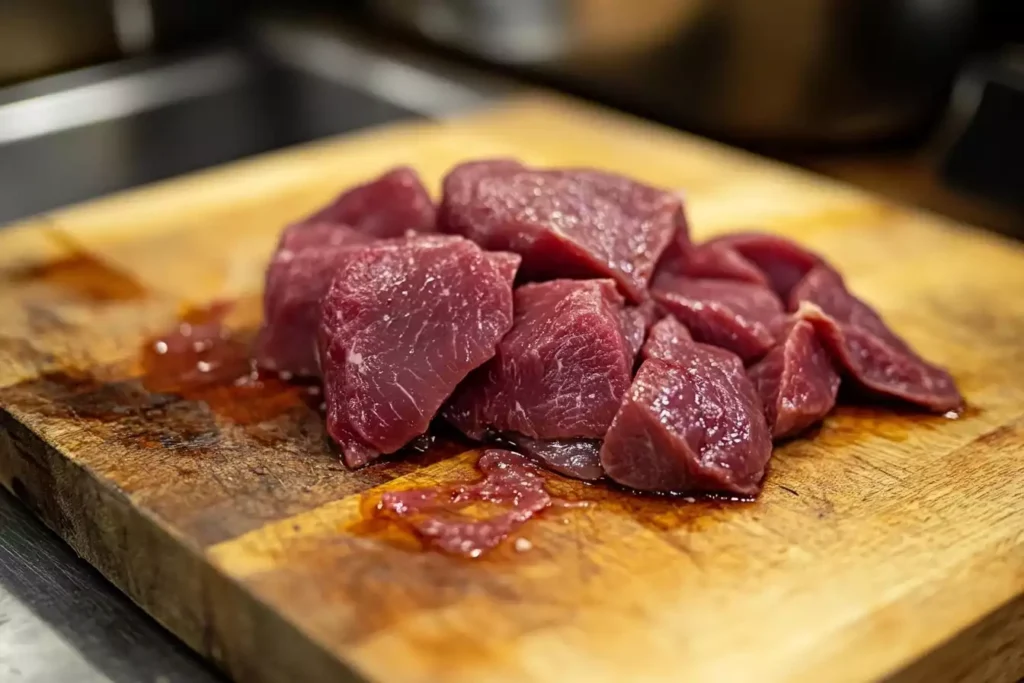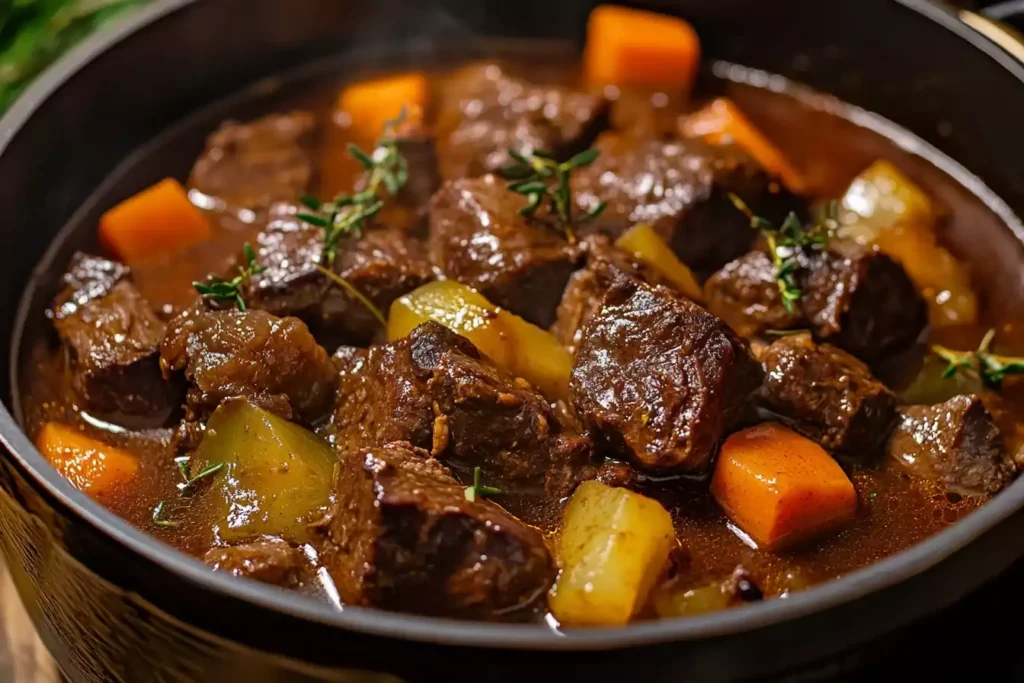The question, “Is it healthy to eat beef spleen?” often brings about a mix of curiosity and hesitation. While it might not be a staple in most American diets, beef spleen is actually a nutrient-dense organ meat that has been a part of traditional cuisines for centuries. This guide will explore the nutritional benefits, potential drawbacks, and everything you need to know about incorporating beef spleen into your diet. If you’re looking for a way to add a powerful punch of nutrients to your meals, understanding this incredible food is key.
Table of Contents
What Exactly is Beef Spleen?

Before we dive into the nutritional aspects, let’s clarify what beef spleen actually is. The spleen is an organ found in all mammals, including cattle. It plays a crucial role in the immune system and blood filtration. Beef spleen, therefore, is the spleen of a cow, and it is considered an offal or organ meat. It is not typically sold in mainstream supermarkets, but it can be sourced from farmers markets, butchers, or specialty meat stores.
The Nutritional Powerhouse of Beef Spleen
Now, let’s tackle the core question: Is it healthy to eat beef spleen? The short answer is yes, it can be a valuable addition to a balanced diet due to its rich nutrient profile. Here are some of the key nutrients you’ll find in beef spleen:
- Iron: Beef spleen is an exceptional source of heme iron, the most easily absorbed form of iron. Iron is essential for preventing anemia and supporting energy production. This high iron content is particularly beneficial for people struggling with iron deficiency. Adding foods like this to your diet, as described in our post about Iron-Rich Foods, can significantly boost your health.
- Vitamin B12: A vital nutrient for nerve function and the formation of red blood cells, Vitamin B12 is abundant in beef spleen. This is especially important for individuals who don’t eat a lot of meat, as B12 is primarily found in animal products.
- Copper: Copper is needed for iron metabolism and energy production. Beef spleen provides a good amount of copper, making it a helpful addition to your diet.
- Selenium: As an essential mineral, selenium functions as a powerful antioxidant that can protect the body against oxidative stress, improving thyroid functions, and supporting the immune system.
- Protein: As an important protein source, beef spleen can aid in muscle building and repair. Protein is also essential for making enzymes, hormones, and other important chemicals in the body.
- Other vitamins and minerals: Beef spleen also contains a variety of other beneficial nutrients such as Vitamin A, riboflavin, niacin, Vitamin B6, pantothenic acid, and folate
Is it Healthy to Eat Beef Spleen? Health Benefits of Consuming Beef Spleen

Incorporating beef spleen into your diet, alongside regular exercise and balanced meals like the healthy recipes in our Simple and Delicious Chicken Salad Recipes, can unlock several health benefits. Let’s delve into the specific advantages:
Boosts Iron Levels and Combats Anemia
As mentioned earlier, the high heme iron content in beef spleen makes it a powerful tool against iron deficiency anemia. Consuming iron-rich foods is a natural approach to improving your blood health and energy levels. You may also consider checking out our article about The Best Low-Calorie Fruits and Vegetables for Weight Loss to complement this dietary approach for comprehensive health.
Supports Healthy Red Blood Cell Formation
The B12 in beef spleen plays a vital role in the formation of healthy red blood cells. This is crucial for oxygen transport throughout the body. When B12 levels are low, it can lead to fatigue, weakness, and other symptoms.
Enhances Immune Function
The minerals and vitamins found in beef spleen, including selenium and copper, contribute to a robust immune system. These nutrients help the body defend against infections and illnesses, ensuring optimal immune responses.
Improves Energy Levels
The combination of iron, B vitamins, and other essential nutrients in beef spleen can lead to improved energy levels. If you often feel tired or lethargic, incorporating this nutrient-rich food could make a noticeable difference.
Supports Healthy Metabolism
The array of vitamins and minerals present in beef spleen helps in supporting a healthy metabolism. Proper metabolism is essential for converting food into energy, enabling the body to function at its best. Additionally, ensuring you maintain a good metabolic rate can be supported by a varied and balanced diet and lifestyle.
Promotes Muscle Development and Repair
Beef spleen is a good source of high-quality protein, which is essential for building and repairing muscles. If you’re engaged in physical activity, consuming protein-rich foods is vital for muscle recovery and growth.
Offers Antioxidant Benefits
Selenium, a mineral found in beef spleen, acts as an antioxidant that helps protect the body against free radicals. Antioxidants are essential in reducing the risk of chronic diseases and supporting overall cellular health.
Potential Downsides and Considerations
While the benefits are compelling, it’s essential to be aware of potential downsides. Is it healthy to eat beef spleen for everyone? Here are some considerations:
High Cholesterol Content
Beef spleen is relatively high in cholesterol. Individuals with high cholesterol or heart conditions should consume it in moderation and consult with their healthcare provider. If you need to manage your cholesterol levels, our article on Oatmeal Health Benefits can offer some additional insight into heart-healthy options.
Purine Content
Beef spleen is high in purines, which can be converted into uric acid. People prone to gout may experience flare-ups. It’s crucial to consult a doctor if you have gout before consuming organ meats regularly.
Preparation Methods
The way you prepare beef spleen can affect its nutritional value. Avoid overcooking, as it can destroy some of the heat-sensitive vitamins. Also, be careful about the addition of unhealthy fats.
To ensure your meat is properly prepared, following our How to Cook Perfect Steak Every Time can be beneficial to learning the best methods.
Taste and Texture
Beef spleen has a distinct flavor and texture that may not appeal to everyone. It’s often described as having a slightly gamey or metallic taste. Experiment with different cooking methods and recipes to find a preparation that you enjoy.
Ways to Prepare and Cook Beef Spleen
If you’re intrigued to try beef spleen, it’s important to know how to prepare it properly. Here are some ideas:
Braised Beef Spleen
Braising is a method of slow cooking that can help tenderize the spleen. Braise it with aromatics like onions, garlic, and herbs for a flavorful dish.
Pan-Fried Beef Spleen
Slicing the spleen thinly and pan-frying it with some healthy fat is a quick cooking option. Make sure you don’t overcrowd the pan to get a nice sear. This method results in a crispy exterior with a soft interior.
Spleen Stew
Adding beef spleen to a hearty stew or soup is another way to enjoy its benefits. The slow cooking time can break down the connective tissue, making it more tender and easier to eat.
Grilled Beef Spleen Skewers
Marinate the spleen slices and grill them on skewers for a different flavor profile. This method adds a smoky char that many find appealing.
Spleen and Vegetable Stir-Fry
Include the spleen in a stir-fry with colorful vegetables. This is a fast and easy option that combines nutrition with taste. Incorporating more veggies into your diet is essential and our post on The Healthiest Way to Eat Vegetables can help you with ideas.
Flavor Profile of Beef Spleen: What to Expect
For those curious about the taste, beef spleen tends to have a unique flavor that’s different from other organ meats like liver. It’s often described as slightly metallic or earthy, and has a more mild gamey flavor compared to beef liver. The taste can vary based on how it’s prepared, but here is a general overview of the flavor:
- Earthy Notes: Beef spleen often carries a rich earthy flavor, which comes from its high iron content.
- Slightly Metallic: A slightly metallic aftertaste is also common, this is often more noticeable in dishes that are simply cooked.
- Savory Taste: When cooked well with herbs, spices, and healthy fats, beef spleen can be very savory. The correct preparation can enhance its natural flavor, making it more enjoyable.
- Texture: The texture of cooked spleen should be tender and somewhat similar to that of liver. It shouldn’t be rubbery or chewy; if it is, then it hasn’t been cooked properly.
- Mild Gamey Flavor: While not as intense as some other organ meats, a mild gamey flavor is often present and is what makes the beef spleen flavorful.
Frequently Asked Questions (FAQs)
Let’s address some common queries about beef spleen.
Which part of the cow is spleen?
The spleen is an organ located in the abdominal cavity of the cow. It’s part of the circulatory and immune systems, responsible for filtering blood and removing old red blood cells.
What does beef spleen taste like?
Beef spleen typically has a unique, slightly metallic or earthy taste with a mild gamey flavor. It has a savory profile when cooked with herbs and spices. The flavor is often milder than beef liver and is palatable to a wide variety of tastes.
Is beef spleen the same as beef liver?
No, beef spleen and beef liver are different organs with different functions and nutritional profiles. While both are nutrient-rich, beef liver tends to be richer in Vitamin A and has a stronger flavor. Beef spleen, on the other hand, is often higher in iron and has a milder, more earthy taste.
Conclusion: Is Beef Spleen Right For You?
So, is it healthy to eat beef spleen? Absolutely, it can be a nutritious addition to your diet if consumed in moderation as part of a balanced diet. Its rich nutrient profile, including high iron, B12, and other essential minerals, offer amazing health benefits. While it might not be for everyone due to its unique taste and texture, if you are willing to explore different food options, beef spleen is a great way to incorporate valuable nutrients in your daily meals. As with any food, it’s important to consider your individual health needs and consult a healthcare professional if you have concerns about consuming beef spleen. Ready to try it? Share your experiences in the comments below!
For More Articles Links:

